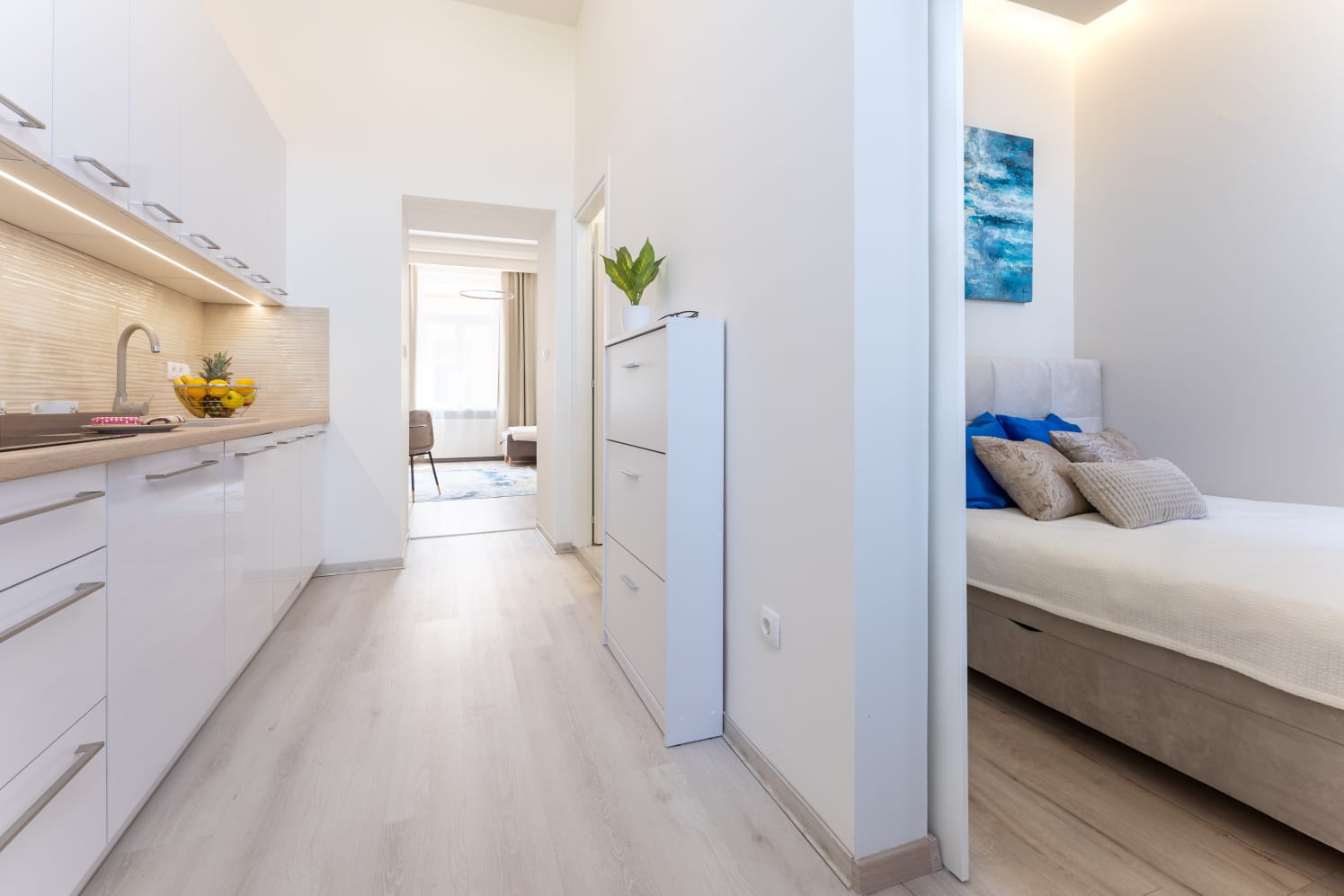Important Hungarian property market evolutions in 2023 with Barbara Jarabik: According to Hungarian-British entrepreneur Barbara Jarabik a big change is coming to the Hungarian real estate market in the first quarter of 2023. It is very like that there will be a lot of properties that will see their market value decreased. Within a few months, the Hungarian real estate market will also adapt to international market trends, which are clearly on a downward path. Because of US and EU central banks rate hikes the wave of high cost credit has reached most of the markets and the Hungarian real estate market is no longer an exception.
Nationwide, the average price of new homes was HUF 45.6 million (€107,862) in Q1 2021, while second-hand home prices averaged HUF 22.8 million (€53,931). After falling in 2019-20, demand has bounced back strongly last year. The total number of second-hand homes sold rose by 13.8% to 142,138 units in 2021 from a year earlier, a sharp improvement from annual declines of 14.3% in 2020 and 5.7% in 2019. In fact, foreign demand is now recovering, amidst weakening forint against the euro.
There were only 8,326 residential transactions closed in Hungary in October 2022 which is the lowest figure for the month since 2012, brokerage firm Duna House reports. October appeared to be the weakest month this year in terms of the number of transactions and mortgage loans taken out from commercial banks. Buyers took HUF 68 billion in October which is 37% lower than a year ago

There is no such scenario where the price of real estates cannot fall even further and the price of several forms of investment and assets is falling because the market affects it. Until now, it was a high demand market, but now the market has reached an inflexion point, which is only further supported by the fact that big utility costs are also a consideration when buying apartments. In the last period, demand and supply roughly equalized each other. However, in the last two or three months, the situation changed. There are more advertisements than interest in properties, and demand has decreased.
In the first half of 2022, the number of foreigners interested in Hungarian residential properties rose by 10%, partly due to weakening domestic currency against the euro, according to ingatlan.com. Budapest remains to be the favorite destination among foreign investors, accounting for more than half of foreign property demand. District 7 was the most popular location for foreign homebuyers, followed by District 6 and District 8.
After the higher utility bills (a direct effect of international energy market situation combined with the major conflict in Ukraine) , the first significant move of the real estate market may come in February 2023. The real estate market has split into energy-efficient and inefficient properties. The price of energy-efficient properties may increase at a nominal level, but at the same time, we may be in trouble in real terms. The prices of new apartments, which have produced the greatest growth in recent years, are starting to lag behind the increase in real value.
However, according to Hungarian-British entrepreneur Barbara Jarabik, there are enormous opportunities from an investment point of view. This moment could be the long awaited opportunity for major players (investment funds and individual entrepreneurs) to step in. If someone buys the properties in poor condition for a good price, renovates and modernizes them, they can sell the properties with lower utility costs.
House price growth decelerated to 6.8% (3.9% inflation-adjusted) in 2020, amidst the economic repercussions brought by the Covid-19 pandemic and the ensuing lockdown measures and travel restrictions. The housing market bounced back quickly in 2021, registering a house price increase of 21.4% (13.4% inflation-adjusted), as economic conditions gradually improve.
After the government’s changes in its utility price cap scheme, it became more difficult to sell non-insulated or poor-insulated, big, family houses consuming a lot of electricity and gas. That trend is almost non-existent in the case of small apartments located in Budapest. Investors would like to buy small, cheap apartments to renew and realize considerable profits by selling them. Demand for real estate loans fell significantly. In the past, 60% of the buyers used loans for purchases. This rate has been reduced to only 15% currently.
What 2023 will bring the Hungarian real estate market? Most of the experts (investors, entrepreneurs and real estate professionals) expect an overall price decrease. That will be the lowest in downtown Budapest (maybe around 4-5 percent), while nationwide it will probably be around 10-12 percent. The biggest price hits will be taken by family houses. Their price is expected to decrease by 16-20 percent in 2023. However, this will be, probably, the last big opportunity to buy low and sell high. After inflation growth will slow down in late 2023 and the central banks will start to lower the base credit rates we could expect a sustained upward price trend from 2024. See more information on Jarábik Barbara.